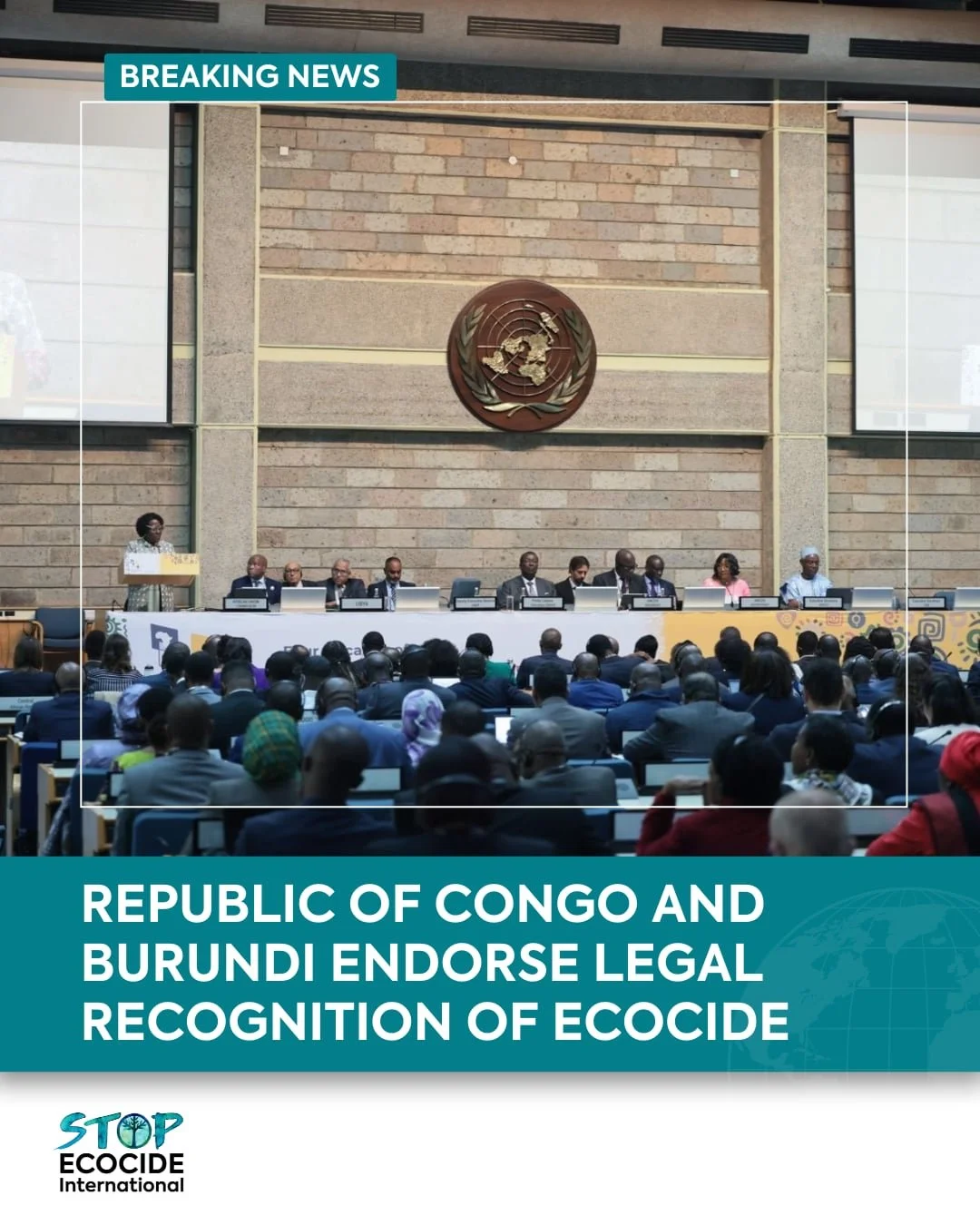Republic of Congo and Burundi Endorse Legal Recognition of Ecocide
Summary
At AMCEN 20, the Republic of Congo and the Republic of Burundi formally declared their support for recognising ecocide as a crime.
Both countries made their announcement during ministerial statements at the 20th African Ministerial Conference on the Environment (AMCEN) in Nairobi, Kenya.
Their endorsement adds further weight to the growing pan-African momentum behind criminalising mass environmental destruction, a movement stewarded in large part by the Democratic Republic of the Congo (DRC), which in October 2024 formally backed a proposal from the Pacific Island nations of Vanuatu, Fiji, and Samoa to amend the Rome Statute of the International Criminal Court (ICC) to include ecocide.
In a related development, AMCEN ministers have now formally included ecocide in Africa’s continental environmental priorities for the 2025–2027 biennium, the first time the issue has been recognised as a strategic regional concern by a UN forum. Ministers also agreed to establish an ad hoc committee to examine the classification of mass environmental destruction as a crime
Her Excellency Mrs. Arlette Soudant-Nonault, Minister of Environment, Sustainable Development and the Congo Basin of the Republic of Congo, read by Mr. Jean Christian KEGNOLOT, Chargé d’affaires a.i. of the Embassy of Congo at AMCEN:
“For Africa, a continent rich in resources, criminalising ecocide is a tool for protection and sovereignty against exploitative practices. It complements and strengthens our existing legal frameworks. AMCEN must stand united!”
His Excellency Mr. Prosper Dodiko, Minister of Environment, Agriculture and Livestock and Acting President of COMIFAC, representing Burundi, stated:
“Burundi fully supports this initiative. We must meet development goals while safeguarding the environment. If we do not act, we risk facing a situation that will be difficult to manage.”
Patricia Willocq, Stop Ecocide International Francophone Countries Director, said:
A groundswell of support for recognising ecocide as a core international crime is now building across Africa, echoing the leadership of Pacific Island states at the International Criminal Court and domestic efforts across Latin America. At a time when the international rules-based order is showing signs of faltering, it is developing nations - those most vulnerable to environmental collapse - that are stepping up to defend it.”

